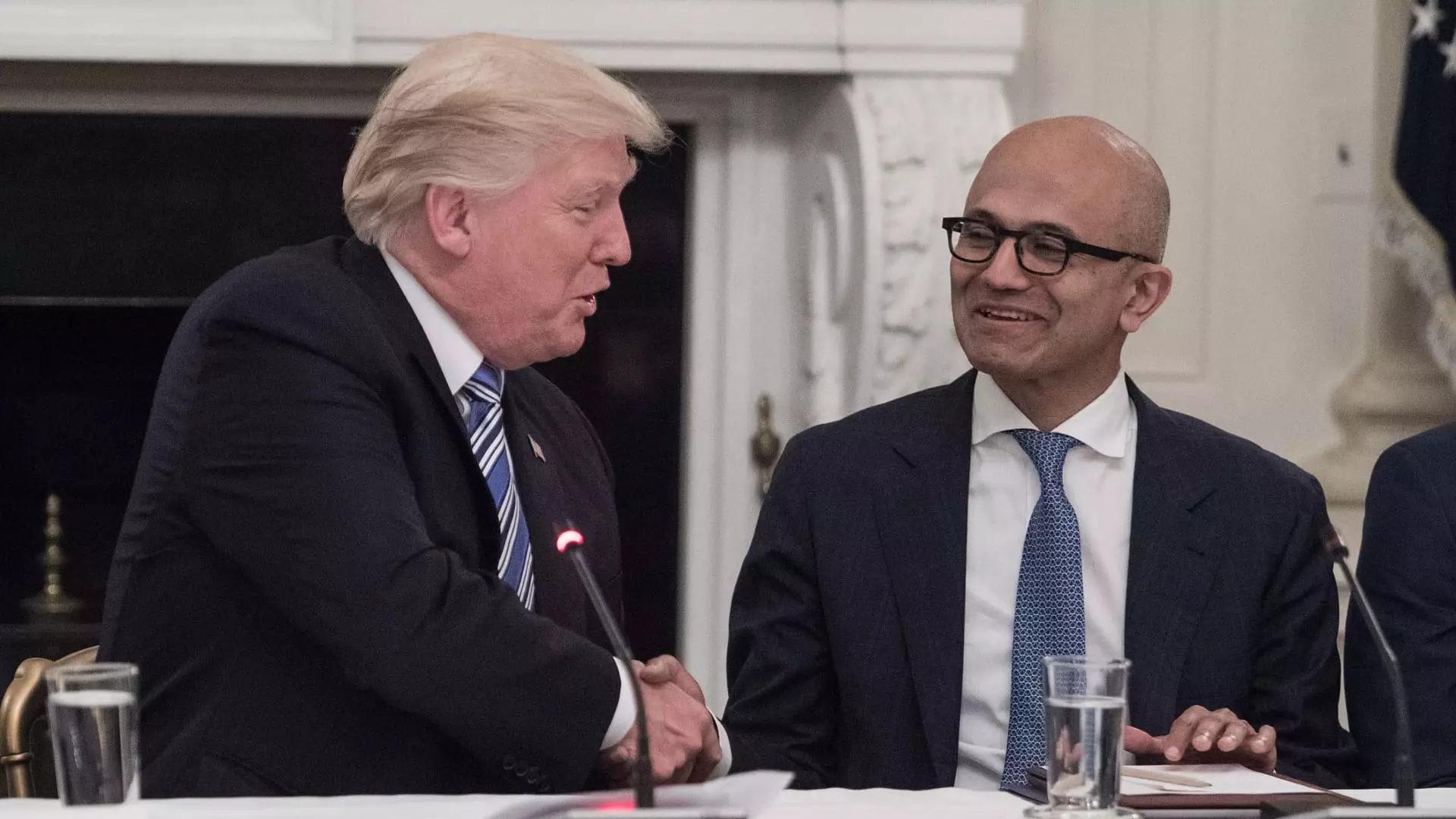The intersection of technology and politics continues to draw significant attention, especially in an era where major tech companies wield considerable power and influence. Recent announcements reveal that major players in the tech industry, including Microsoft, Google, Meta, and various others, have pledged substantial financial contributions to the inauguration fund of President-elect Donald Trump. Each company, contributing $1 million, aligns itself not only with a political figure but also with the potential influence such contributions can yield in shaping policy directions that directly affect their businesses.
This isn’t Microsoft’s first involvement with the inauguration fund of a sitting president. Indeed, the company previously contributed $500,000 to Trump’s initial inauguration and matched that amount for Joe Biden’s transition. Such financial gestures could be interpreted as a strategy to maintain a favorable relationship with whichever administration is in power. This pattern of political donations reflects a broader trend among tech firms that seek not only to influence policy but also to navigate the ever-evolving regulatory landscape that governs their industries.
The Strategic Implications for Artificial Intelligence
Microsoft’s CEO, Satya Nadella, has had numerous interactions with Trump, particularly concerning negotiations involving significant matters like the potential acquisition of TikTok, a move fraught with political complications. As artificial intelligence (AI) emerges as a critical arena for national and global economic competitiveness, tech leaders like Brad Smith, Microsoft’s vice chair, are vocal about the need for the U.S. to champion a robust international strategy for AI. By aligning closely with Trump, Microsoft aims to advocate for policies that nurture AI development, potentially securing an advantageous position over competitors on the international stage.
Notably, other tech luminaries have also stepped into this fray. OpenAI’s CEO, Sam Altman, has independently pledged $1 million, while Apple’s Tim Cook has also indicated he would contribute similarly. These actions reflect a sense of urgency among tech leaders to not only be part of the political landscape but also, perhaps more critically, to ensure that their interests and the interests of the tech industry at large are adequately represented in governmental policy discussions. Influential figures such as Elon Musk have also engaged directly with Trump, providing advice that could shape critical decisions affecting the tech sector.
The intersections between technology and politics are becoming increasingly pronounced, where financial contributions to political funds are seen as a necessity for access and influence. As tech giants actively participate in shaping the political dialogue, the implications of these contributions raise important questions about the relationship between private sector innovation and public policy. Companies must tread a fine line: leveraging political connections while remaining accountable to the broader society from which they derive their power. This evolving landscape hints at a new era in which tech and politics are intertwined more than ever, posing both opportunities and challenges for navigating future developments.


Leave a Reply